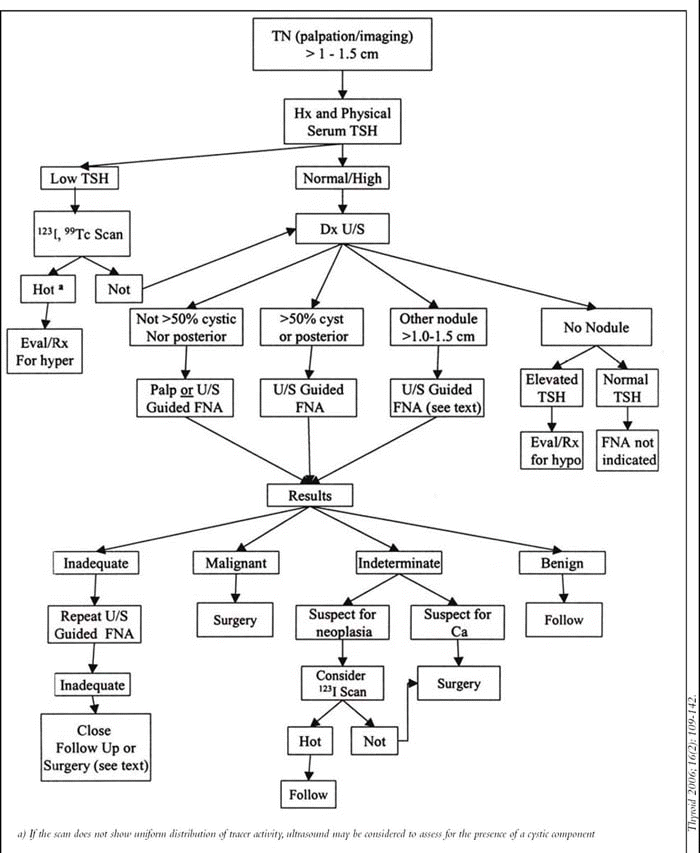“I know in oncology it is unheard of to have a cancer and not have a randomized trial to figure out what to do about it,” said Dr. Cooper, who also is Professor of Medicine at Johns Hopkins University School of Medicine. “But in this particular situation, there really aren’t any.”
Explore This Issue
July 2006The reason for this, he explained, is that most patients with thyroid cancer have indolent, slow-growing disease that is cured simply by surgically removing the tumor. For destroying microscopic disease left behind by surgery, radioactive iodine is commonly given.
However, based on the evidence, use of radioactive iodine is not fully supported. Dr. Cooper said the evidence is fairly slim that adjuvant radioactive iodine is beneficial: “This is sort of a standard thing that people are getting, but we point out in the guidelines that it’s not necessarily proven beyond a shadow of a doubt that this is actually beneficial.”
For Dr. Cohen, the guidelines emphasize the need for better evidence on this issue. “Studies are needed to define the appropriate patients to treat with radioactive iodine, and the best doses of radioactive iodine to use,” he said.
Radioactive Iodine for Higher-Grade Tumors
Although no randomized evidence is available on which to recommend treatment, the guidelines do provide evidence that supports giving radioactive iodine in people with higher-grade tumors.
“In terms of what is the appropriate candidate for getting radioactive iodine, we now tie them to the TNM classification,” he said. “We admit that the level of evidence is not A-level evidence, but there is evidence supporting doing this in people with higher-grade tumors.”
Unresolved Areas and Types of Evidence

Dr. Cohen said the guidelines do a nice job of identifying unresolved areas and differentiating the types of evidence on which recommendations are based.
“The authors note when their recommendations are based on expert opinion as opposed to clinical trials, and when there is not enough information to even make a recommendations,” he said, adding that for unresolved issues treatment decisions need to be individualized.
Another area that remains unresolved and needs further research is more effective treatment for patients with advanced disease.
Unlike the American Thyroid Association’s original guidelines, which were based mostly on expert opinion, this updated version uses an evidence-based approach that included a comprehensive review of the literature followed by recommendations for diagnosis and treatment based on the quality of the studies found.
Leave a Reply